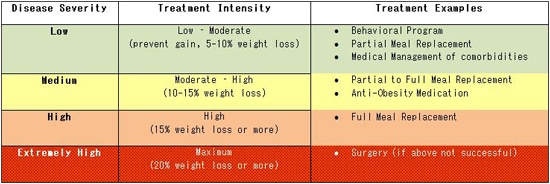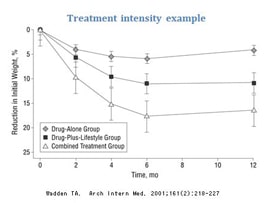Pick a Good New Year’s Resolution this Year
Posted: Dec 10 in Weight loss by Dr. Lazarus
I know after the New Year, I will see lots of new patients – January is always a busy month for me at CNC. There will be a common theme – “My resolution for the New Year is to lose weight!” I am so happy to work with these individuals and help them achieve their goals! However, unfortunately, all too often, the goal of “losing weight” will result in a quick regain for one of two reasons:
- The goal is reached! Great Job! Now it’s time to work on something else. We stop the treatments that helped with weight loss (usually a combination of medications, meal replacements, support visits, behavior changes, etc) and gradually return to the old ways, and the old weight, only to have the same New Year’s resolution again the next year.
- The goal is NOT reached, usually because the goal weight chosen was out of our biological reach (NOT because of a lack of trying, understanding, knowledge, willpower, etc).
Let’s set a better goal for 2015. Let’s set a goal we can not only achieve, but sustain. Instead of picking a goal WEIGHT, let’s think about real changes we can make in our lives. We can have a goal to walk more during the day, to sit less, to drink water before meals, or even to see a dietitian for support. We can make goals to take medication for appetite control, or even to replace 1 or 2 meals per day with fixed calorie meal replacements.
Instead of discussing a weight loss goal per se, we want to pick a treatment intensity that is appropriate for the magnitude of the problem. We don’t want to use a bazooka to kill an ant. Conversely, throwing a pebble won’t slow a grizzly bear down very much.
Obesity is a disease, like it or not, with serious consequences. Let’s match the intensity of our treatment program to the severity of the disease state. The following might be one way to think about this:

 Let’s look at an example of multi-component treatment. In this study, patients were either treated with just medication, behavioral change plus medication, or behavioral change plus medication plus meal replacements (Optifast). Note how as treatments are added, more weight is taken off.
Let’s look at an example of multi-component treatment. In this study, patients were either treated with just medication, behavioral change plus medication, or behavioral change plus medication plus meal replacements (Optifast). Note how as treatments are added, more weight is taken off.
Instead of a goal of weight loss, let’s recognize that obesity is a complicated, chronic problem that can be controlled. Weight loss goals suggest that it can be cured. It can’t. But, if we choose a proper treatment intensity, we can really impact this. We can improve health, lower appetite, increase energy, and most importantly, give you back the ability to control your weight.
After all, isn’t that what losing weight is supposed to be all about in the first place?

